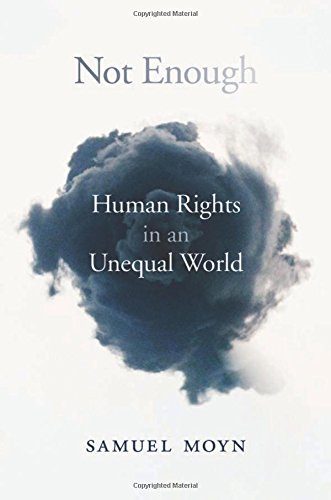

Most ebook files are in PDF format, so you can easily read them using various software such as Foxit Reader or directly on the Google Chrome browser.
Some ebook files are released by publishers in other formats such as .awz, .mobi, .epub, .fb2, etc. You may need to install specific software to read these formats on mobile/PC, such as Calibre.
Please read the tutorial at this link: https://ebookbell.com/faq
We offer FREE conversion to the popular formats you request; however, this may take some time. Therefore, right after payment, please email us, and we will try to provide the service as quickly as possible.
For some exceptional file formats or broken links (if any), please refrain from opening any disputes. Instead, email us first, and we will try to assist within a maximum of 6 hours.
EbookBell Team

4.8
44 reviews“Samuel Moyn breaks new ground in examining the relationship between human rights and economic fairness. If we don’t address the growing global phenomenon of economic inequality, the human rights movement as we know it cannot survive or flourish.” ―George Soros
The age of human rights has been kindest to the rich. Even as state violations of political rights garnered unprecedented attention due to human rights campaigns, a commitment to material equality disappeared. In its place, market fundamentalism has emerged as the dominant force in national and global economies. In this provocative book, Samuel Moyn analyzes how and why we chose to make human rights our highest ideals while simultaneously neglecting the demands of a broader social and economic justice.
In a pioneering history of rights stretching back to the Bible, Not Enough charts how twentieth-century welfare states, concerned about both abject poverty and soaring wealth, resolved to fulfill their citizens’ most basic needs without forgetting to contain how much the rich could tower over the rest. In the wake of two world wars and the collapse of empires, new states tried to take welfare beyond its original European and American homelands and went so far as to challenge inequality on a global scale. But their plans were foiled as a neoliberal faith in markets triumphed instead.
Moyn places the career of the human rights movement in relation to this disturbing shift from the egalitarian politics of yesterday to the neoliberal globalization of today. Exploring why the rise of human rights has occurred alongside enduring and exploding inequality, and why activists came to seek remedies for indigence without challenging wealth, Not Enough calls for more ambitious ideals and movements to achieve a humane and equitable world.